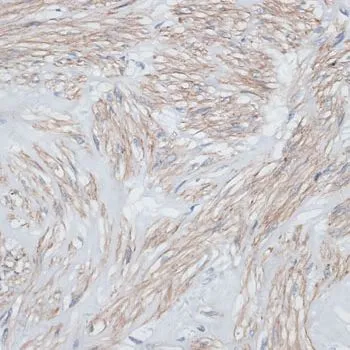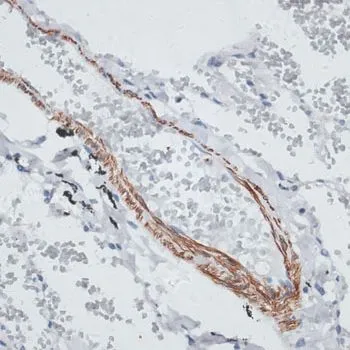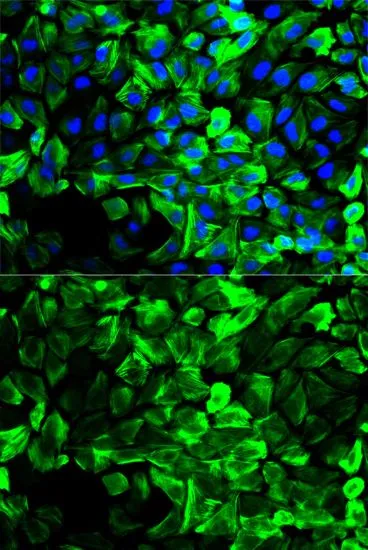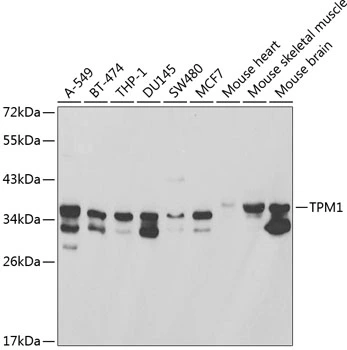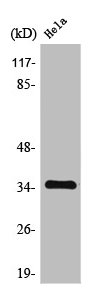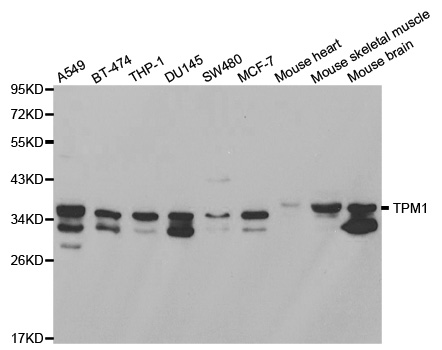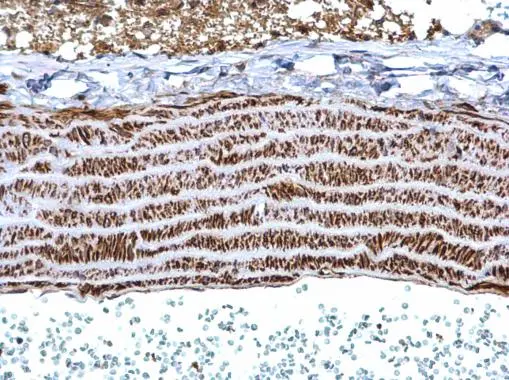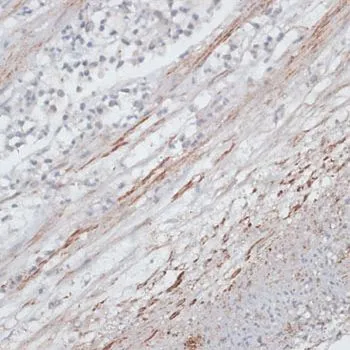
IHC-P analysis of human appendix tissue using GTX55822 Tropomyosin 1 antibody. Dilution : 1:100
Tropomyosin 1 antibody
GTX55822
ApplicationsImmunoFluorescence, Western Blot, ImmunoCytoChemistry, ImmunoHistoChemistry, ImmunoHistoChemistry Paraffin
Product group Antibodies
ReactivityHuman, Mouse
TargetTPM1
Overview
- SupplierGeneTex
- Product NameTropomyosin 1 antibody
- Delivery Days Customer9
- Application Supplier NoteWB: 1:500 - 1:2000. ICC/IF: 1:50 - 1:200. IHC-P: 1:50 - 1:200. *Optimal dilutions/concentrations should be determined by the researcher.Not tested in other applications.
- ApplicationsImmunoFluorescence, Western Blot, ImmunoCytoChemistry, ImmunoHistoChemistry, ImmunoHistoChemistry Paraffin
- CertificationResearch Use Only
- ClonalityPolyclonal
- ConjugateUnconjugated
- Gene ID7168
- Target nameTPM1
- Target descriptiontropomyosin 1
- Target synonymsC15orf13, CMD1Y, CMH3, HEL-S-265, HTM-alpha, LVNC9, TMSA, tropomyosin alpha-1 chain, cardiomyopathy, hypertrophic 3, epididymis secretory protein Li 265, sarcomeric tropomyosin kappa
- HostRabbit
- IsotypeIgG
- Protein IDP09493
- Protein NameTropomyosin alpha-1 chain
- Scientific DescriptionThis gene is a member of the tropomyosin family of highly conserved, widely distributed actin-binding proteins involved in the contractile system of striated and smooth muscles and the cytoskeleton of non-muscle cells. Tropomyosin is composed of two alpha-helical chains arranged as a coiled-coil. It is polymerized end to end along the two grooves of actin filaments and provides stability to the filaments. The encoded protein is one type of alpha helical chain that forms the predominant tropomyosin of striated muscle, where it also functions in association with the troponin complex to regulate the calcium-dependent interaction of actin and myosin during muscle contraction. In smooth muscle and non-muscle cells, alternatively spliced transcript variants encoding a range of isoforms have been described. Mutations in this gene are associated with type 3 familial hypertrophic cardiomyopathy. [provided by RefSeq, Jul 2008]
- ReactivityHuman, Mouse
- Storage Instruction-20°C or -80°C,2°C to 8°C
- UNSPSC41116161

